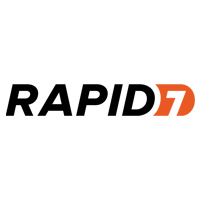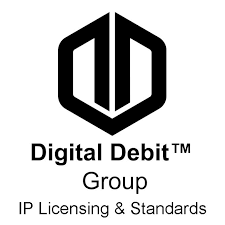Published
- 01:00 am

Amsterdam, the Netherlands, 6 December 2017 – Datacenter.com, an exceptionally ambitious data center provider that paid over $500,000 to buy its domain name while planning a targeted global roll-out of large-scale colocation data centers, unveils its on-demand colocation services model designed to scale, Datacenter.com Start Direct Cabinets. With a month-to-month contract and no minimum term, the pay-as-you-go colocation offering provides cloud-like elasticity including highly flexible power and connectivity options.
Last week, Datacenter.com announced the official opening of its ‘green’ Amsterdam flagship colocation data center, Datacenter.com AMS1 - the company’s first facility that will total 54.000 square feet (5.000 square meters) of colocation data center space upon completion. The Amsterdam facility features a unique, highly energy-efficient data center setup with indirect adiabatic cooling technologies and a calculated pPUE figure of 1.04. Today, Datacenter.com announces the go-to-market strategy for their globally planned data center services operations. With this pay-as-you-go colocation offering featuring terms of contract flexibility, Datacenter.com intends to do things completely differently in the global data center services market.
The new offering, Datacenter.com Start Direct Cabinets, provides customers the opportunity to gain the benefits of enterprise-grade, pay-as-you-go colocation services on a flexible 30-day contract term. This colocation offering comes with flexible connectivity contracts as well, through which customers are enabled to easily adjust to changing networking requirements and public cloud platform access (such as AWS, Microsoft Azure, Google Cloud, or Oracle Cloud). The pay-as-you-go colocation offering with short-term commitments would help customers respond quickly to any shift in business requirements.
To learn more about Datacenter.com’s Start Direct Cabinets and their pay-as-you-go colocation offering with cloud-like elasticity, visit: https://datacenter.com/solution/colocation-services/start-direct-cabinet/.
‘Innovative Approach’
Datacenter.com expects its Start Direct Cabinets to seamlessly fit the hybrid cloud requirements of a broad portfolio of potential customers including Cloud Services Providers (CSPs), Enterprises, SMBs, Managed Services Providers (MSPs), Systems Integrators (SIs), and Internet Services Providers (ISPs). Start Direct Cabinets would cater to the needs of end-users as well as channel partners seeking highly flexible, low-risk investments.
“As our colocation business is founded by some industry veterans, we are aware that long-term colocation data center contracts are no longer convenient,” said Jochem Steman, Chief Executive Officer (CEO) of Datacenter.com. “With the launch of Start Direct Cabinets, Datacenter.com is responding to these cloud-like flexibility requirements. Next to our ultra energy efficient and highly modular thus scalable data center infrastructure, the introduction of Start Direct Cabinets is yet another example reflecting Datacenter.com’s innovative approach to deploying enterprise-grade colocation services.”
Capabilities of Datacenter.com Start Direct Cabinets include:
- Flexible colocation services - Pay-as-you-go install with month-to-month contract, no minimum term.
- Flexible power configurations - low to high-density options (from 3.68kW to 7kW)
- High-volume racks available - 54U cabinets (1200mm deep x 600mm wide)
- Multiple connectivity options – users may select their individual networking infrastructure, including Internet feeds, cross connects, et cetera.
- Managed engineering services – remote hands, 24x7 staffing onsite, et cetera.
Built in several phases, Datacenter.com’s new colocation data center marks the beginning of a global facility rollout in selected markets. Located in the heart of Amsterdam’s Southeast business district featuring one of the highest fiber densities in the world, the new facility is engineered to deliver 2N critical power redundancy. This would allow for concurrent maintenance without interruption.
Phase 1 of this carrier neutral data center facility in Amsterdam provides 19.500 square feet (1.800 square meters) of net technical colocation space. On top of its high energy-efficiency (pPUE: 1.04), Datacenter.com AMS1 is running entirely (100%) on green power generated from renewable resources, which would keep their environmental footprint to a minimum. Over 60% of phase 1 has already been pre-let to a variety of leading customers among which many cloud providers.
Related News
- 05:00 am

Rapid7, a leading provider of analytics solutions for security and IT operations, today announced it has been named a Visionary in Gartner's 2017 Magic Quadrant for Security Information and Event Management. Among the vendors included in the Visionaries quadrant, Rapid7 is positioned the highest for its ability to execute.
"The SIEM market is mature and very competitive. We are in a broad adoption phase, in which multiple vendors can meet the basic requirements of a typical customer. The greatest area of unmet need is effective detection of targeted attacks and breaches. Organizations are failing at early breach detection, with more than 80% of breaches undetected by the breached organization. The situation can be improved with threat intelligence, behavior profiling and effective analytics," wrote Gartner report authors Kelly M. Kavanagh, Principal Research Analyst, Toby Bussa, Research Director.
Rapid7's primary SIEM solution, InsightIDR, is delivered through the Rapid7 Insight platform and provides log collection and management, threat detection rules and correlations, advanced analytics, user behavior analytics, machine learning, dashboards, case management, and workflow and reporting. The Rapid7 Insight platform brings analytics to an array of IT challenges-without the burden of managing hardware or deciphering new data formats.
"SIEM vendors continue to increase their native support for behavior analysis capabilities as well as integrations with third-party technologies, and Gartner customers are increasingly expressing interest in developing use cases based on behavior," the report continued.
Sign up for a free trial of InsightIDR: https://www.rapid7.com/products/insightidr/try/
"Five years ago, we made a bet that advanced analytics, user monitoring, and machine learning would be critical to effectively responding to modern cyber attacks. We believe this recognition by Gartner is confirmation of that vision," said Corey Thomas, President and CEO of Rapid7.
To view a complimentary copy of the full report, visit: www.rapid7.com/info/gartner-2017-magic-quadrant-critical-capabilities-siem
"We are now focusing on solving automation and orchestration challenges for security and IT, most recently with the acquisition of Komand and integration throughout our SIEM offering. We expect this acquisition to further enhance our market position by helping customers to reduce time to resolution when an incident occurs, maximize resources, and overcome ecosystem complexity," said Thomas.
Related News
- 08:00 am

Gemalto, the world leader in digital security, is supplying the eSIM (embedded SIM) solution for Microsoft's Surface Pro with LTE Advanced, the most connected laptop in its class1 which will begin shipping to business customers in December 2017. Gemalto's partnership with Microsoft enabled Surface to become the first fully integrated embedded SIM PC in the Windows ecosystem.
Gemalto's advanced technology supports seamless activation of mobile subscriptions for users of the innovative Surface Pro with LTE Advanced. This smooth experience leverages Gemalto's remote subscription management solution in conjunction with Windows 10. Surface customers expect their products to deliver advanced technology and with Gemalto's eSIM solution, all possible connectivity options are available out-of-box, including the purchase of cellular data from the device itself.
Compliant with the GSMA Remote SIM Provisioning specifications, Gemalto's eSIM solution is fully integrated with Windows 10. This integration enables the Gemalto solution to have a complete servicing model so that patching and lifecycle management features are available as the technology and standards evolve over time. This capability extends the value promise of Surface as new experiences and capabilities will be available to today's purchasers of the Surface Pro with LTE Advanced.
"The Surface Pro has redefined the laptop category," said Paul Bischof, Director, Devices Program Management at Microsoft. "Gemalto's eSIM solution is helping us to materialize our vision of an uncompromised customer experience."
"Adoption of eSIM technology is growing rapidly. Mobile operators recognize the potential of seamless connectivity and increased convenience as a way of expanding their customer reach to additional devices" said Frédéric Vasnier, executive vice president Mobile Service and IoT for Gemalto. "We are at the beginning of a significant technology transformation and the Surface Pro with LTE Advanced represents the start."
DISCLAIMERS:
- Comparison of supported bands and modem speed for Surface Pro with LTE Advanced vs. 12" and 13" LTE-enabled laptops and 2-in-1 computers. Service availability and performance subject to service provider's network. Contact your service provider for details, compatibility, pricing and activation. See all specs and frequencies at surface.com.
Always Connected Service availability and performance subject to service provider's network. Contact your service provider for details, compatibility, pricing, and activation. See all specs and frequencies at surface.com.
Related News
- 05:00 am

- Facilitate collaboration with corporate partners in developing tools for selected startups to scale-up quickly in new markets or develop businesses in existing markets;
- Require the startups to be on-site once a month for various activities, including workshops and masterclasses; mentor meetings; and networking events, over a period of 6 months;
- Provide opportunities for startups to showcase their progress throughout the 6 month period;
- Take up to 4% equity in each startup that joins the program;
- Provide each company with a cash grant of $30,000 USD;
- Target startups from within the existing Startupbootcamp ecosystem as well as across each program’s region.
"Launched today, Startupbootcamp Scale is a new innovation program for growth stage companies created to contribute towards the transformation of the emerging markets. Through this initiative we aim to boost startups’ potential for growth and fundraising whilst matching them with the right corporate sponsors.”
Related News
- 06:00 am

- Commerzbank's securities settlement operations will be transferred
- Cost savings and simpler processes tie in with "Commerzbank 4.0" strategy
- Due to go live by early 2020, once migration is complete
Commerzbank AG and HSBC Transaction Services GmbH have agreed to enter into a strategic partnership for securities settlement. Under this partnership, Commerzbank's securities settlement business processes will be transferred. For this purpose, a joint venture shall be set up in which Commerzbank shall have a 20 per cent minority stake. The partnership will be in place for an initial period of 10 years.
The new company is due to begin operations in early 2020. By then, both partners will have put in place the technical framework for the data migration. The investments and expected medium-term savings are fully accounted for in the "Commerzbank 4.0" strategy. In 2018, the partners will embark on an intensive testing phase designed to ensure a smooth transition of the securities settlement operations. The partners agreed not to disclose any further details of the agreement.
"Our 'Commerzbank 4.0' strategy is aimed at digitalising the Bank, while also simplifying processes and cutting costs. The strategic partnership with HSBC for securities settlement ties in with both these aims: in the future, we will be using HSBC's state-of-the-art securities platform and achieving clear cost benefits", said Frank Annuscheit, Chief Operating Officer and a member of the Board of Managing Directors of Commerzbank.
Related News
- 01:00 am

AFEX, one of the world's largest non-bank providers of global payment and risk management solutions, has partnered with Ascent Software, to enhance its award-winning straight-through processing pre-payment and post-payment software, Trident Connect.
Used by financial services firms globally, Trident Connect is designed to electronically automate the manual process of preparing, validating and approving local and international payments, eliminating operational risk by routing payments through the organisation’s signatory workflow and compliance processes. It also integrates with multiple banks directly or via SWIFT to execute payment instructions and download transactional data, performing a three-way reconciliation between the banks, itself and the accounting system.
The partnership between AFEX and Ascent simplifies this process further by incorporating real-time foreign exchange to the straight-through payment process through AFEX’s API, making it even easier for organisations that need to carry out a significant number of payments, locally and internationally each day.
“Trident Connect helps firms in the finance and fiduciary sectors to reduce risk, ensure compliance and improve efficiency through the automation of payment processes,” said Joseph Sultana, CEO of Ascent Software. “We are delighted to be able to incorporate AFEX’s foreign exchange capabilities into our software which enhances the platform’s abilities and ultimately helps simplify what can be a time-consuming and error prone operation.”
“Trident Connect is a great system for firms with extensive and complex payment requirements,” said Wayne Mitchell, General Manager EMEA for AFEX. “We are excited to be able to integrate our FX and international payments capabilities into the platform, making it an even more comprehensive and compelling solution for its client base.”
Related News
- 02:00 am

According to Megan Butler, a Director at the Financial Conduct Authority (FCA), financial services firms and banks in the UK are not reporting successful cyber-attacks. In response, Keiron Dalton, a digital identity expert from Aspect Software, is calling for a more open relationship between authorities and banks, to help eradicate the threat of cyber-crime.
Speaking at the ICI Conference in London yesterday, Megan said that although the FCA “does not want to get in the way of organisations resolving such issues, it should be informed when attacks take place”.
Keiron, who is Global Program Senior Director for Aspect Verify, says that transparency is critical if the fight against fraud is to get stronger. He said: “Both financial institutions and the authorities need to work together and be more proactive in protecting their customers’ data and money, and work on the relationships they share as they tackle this growing issue. In the case of the banking industry this is critical, especially as fraudsters tend to follow the channels of adoption, as they are following the money. In January, the first Open Banking standard will go live in the UK to increase competition between banks by leveraging customer data. So, if we can be open to improve business and boost savings for customers, why is the industry not doing the same to improve security for the public’s money?”
The FCA has reported that the number of cyber-attacks has increased from five in 2014 to 49 over the last year. Ransomware is said to be increasing and makes up nearly 17% of attacks reported to the regulator.
Keiron continued: “When a bank finds a cyber-attack threat, it may learn and prevent that specific instance of fraud being successful in future, but it doesn’t share information about the incident with the wider financial community so that they can also learn to prevent similar instances. That needs to change. It should also be imperative for banks to work closely with mobile network operators, as mobile is the main platform of choice for many customers. There needs to be greater synergy, and competitiveness should be put aside for the sake of reducing the financial risk that fraud places on banks’ profitability.”
He added: “Banks and telephone companies often have access to the data showing how people use their networks, in particular behaviours and what is considered ‘normal’ or within a predictable pattern for that individual. This will become increasingly important for banks as they adhere to Know Your Customer practices and will reduce the risk of false positives when suspicious behaviour is flagged. By operating together, and using complex fraud detection and multi-factor authentication technology – such as divert detection and location checks to verify the identity of banking customers – the process will be a lot smoother.”
Related News
- 05:00 am

DueDil, the company information platform, announces that it is joining forces with Credit Data Research, market leader in credit behavioural analysis, to boost access to business finance.
The two firms - both participants of the Nesta’s Open Up Challenge – have established a joint initiative to boost the level of information available about private companies and tear down barriers in business lending decisions.
As part of the collaboration, Credit Data Research is exploring incorporating credit data designed specifically for the banking industry, with DueDil’s database of private company information. Using banking-proof credit data, compared with alternative credit reports in the market, means that businesses are more fairly represented – meaning lenders can make more informed lending decisions.
Commenting, Damian Kimmelman, co-founder and CEO at DueDil, said, “Growth businesses are simply not getting the access to finance they need to expand. This is due to information friction. There simply is not enough information about private companies for lenders to properly price risk and truly understand their business.
“Together, we hope to remove this friction by increasing the level of information there is on each company. An open information economy can bring together businesses and lenders, safeguarding the spirit of entrepreneurs and giving them the break they need to prosper.
Access to finance is consistently highlighted as a serious concern for small to medium businesses (SMEs), which is worrying considering they are the lifeblood of our economy. Their contribution to the British economy is set to exceed £241bn by 2025, up 19 per cent from last year’s figure of £202bn according to research from the Hampshire Trust Bank and the Centre for Economics and Business Research.
Commenting, Alessio Balduini, founder CEO of Credit Data Research, added, “Small and medium sized businesses are at an instant disadvantage. Large companies, especially those that are listed, have a wealth of publicly accessible information, making it easier for lenders to make a decision. Yet for smaller businesses, the absence of information means it is difficult to gain access to the same level of finance.
“We are excited to work with DueDil to provide a service to the SME segment that is badly needed. Open Banking and our Credit Passport are already facilitating transparency by connecting banks, structured finance transactions and SMEs. Our collaboration will enhance access to finance for small businesses and bring them one step closer to creating a fair playing field for business lending.”
Related News
- 05:00 am

An overwhelming 95% of retailers believe that payment-over-time solutions are either important or very important to delivering future digital innovation in the retail industry, with 42% saying the latter, according to the latest research from Econocom UK, a leading provider of digital transformation solutions. Furthermore, 99% of all retailers said that a payment-over-time model would make it easier for them to achieve their digital transformation goals.
The research, conducted on behalf of Econocom by survey consultant Censuswide, polled 100 key IT, digital and finance decision makers across the UK retail industry.
When questioning respondents about their digital transformation plans, Econocom found that 98% of retailers felt it was either important or either very important for them to regularly refresh their in-store technology assets in order to continue innovating. On average, respondents said their businesses were upgrading these assets every 15 months.
When asked specifically what their digital transformation business goals were, more than two-thirds (67%) of respondents said they wanted to improve customer experience and satisfaction, while more than half (55%) were looking to future-proof their business.
However, the research also found that 60% of respondents have struggled to implement new in-store digital technology assets as part of their digital transformation plans, either due to reliance on legacy IT systems, a lack of funds and/or a lack of staff resources. Importantly, just 8% of respondents felt as though there were no barriers to implementation, but a huge 99% of retailers said that a payment-over-time model would make it easier for them to achieve their digital transformation goals.
Chris Labrey, managing director, Econocom UK, says: “This research provides a fascinating insight into the retail industry and proves that existing business models are not conducive to industry innovation. As the figures show, a huge majority of retailers have found it difficult to achieve their digital transformation goals without being faced with obstacles, whether they be technical, financial or otherwise.
“However, payment-over-time models can help retailers jump these hurdles easily, and the demand for them amongst retailers is obvious. By paying for the desired in-store digital technology assets in regular instalments and having all the assets implemented and managed by a trusted provider, retailers can keep their customers satisfied and continue to drive forward innovation in the retail sector for a long time to come.”
Interestingly, digital signage was the most-desired technology asset among retailers, with 57% of respondents looking to implement it into their stores. Mobile point of sale (POS) systems were the second most-desired technology (48%), followed closely behind by mobile devices (45%).
“The in-store customer experience has never been more important to retailers than it is today — if retailers can offer something unique and valuable then they will ultimately drive more customers away from online shopping and into their bricks-and-mortar stores,” says Labrey. “This is why innovative technologies such as digital signage are proving to be so desirable. It’s a clear indication that retailers are in tune with what their customers want; they simply need some help in making sure these needs are met.”
In July 2017, 100 key decision-makers in retail were surveyed by Censuswide. Respondents were drawn from both Tier 1 (those with over £500m annual turnover) and Tier 2 (those with between £30m and £500m turnover) retailers.
Related News
- 06:00 am

Digital Debit Group (DDG), a division of Qondado LLC, announces the release of the Digital Debit® mobile Bitcoin payments app. The company's utilization of the Coinbase API system with the Digital Debit® QR platform delivers the first global off-blockchain P2P mobile payments ecosystem for the growing Bitcoin user base and provides the added benefit of tokenized QR transaction codes for real-time, account-to-account transactions.
DDG believes the opportunity to build Digital Debit® utilizing the standard Coinbase API will give their QR payment system a competitive boost in the growing real-time payments space and become an instant competitor to other mobile payment apps such as Zelle, Venmo, Square Cash, and Western Union. DDG designed the Digital Debit® app with simplified features the company believes will better connect with new users, such as a single panel of operation for sending and receiving payments and the ability to personalize the app with custom background images. The company also designed an innovative visual confirmation system for successful transactions that allow the sender and receiver of Bitcoin to deal fast in rapid transaction environments such as in public venues, mobile food locations, passive donations, restaurants and courtesy tipping.
The company states that by leveraging the Coinbase API, the app will allow users to instantly purchase Bitcoin, load their linked accounts and seamlessly associate their Bitcoin values with other Bitcoin enabled products such as the Shift Visa card. Digital Debit® uses real-time Bitcoin conversions to localized fiat currencies utilizing the 1s (second) accurate Bitcoinaverage world market index to offer the best continuity with global exchanges and wallets. Bitcoin values transferred through the Digital Debit® app using tokenized QR codes exchanges payment off blockchain in real-time between Coinbase accounts. The app also supports legacy on blockchain transactions, third party wallets and cash deposit Bitcoin ATM machines.
DDG roadmap with the Digital Debit® app model includes integration with other banking platforms such as the EMVCo QR, The Clearing House Real-Time Payments, and PayPal with Qondado's Digital Credit® brand.
"We evaluated over 10 banking APIs to build our flagship Digital Debit® app and found the Coinbase API to offer an exciting opportunity to reach a global audience" says Edward Robles, CEO of the Digital Debit Group. Robles further states, "we are delivering an easy to adopt app that hides the complexities of Bitcoin behind fiat currency values that users understand. With the assurance that users can pay and get paid using local currency translation with one globally backed store of value, we see Digital Debit playing a significant role in the adoption of Bitcoin for day to day transactions."









